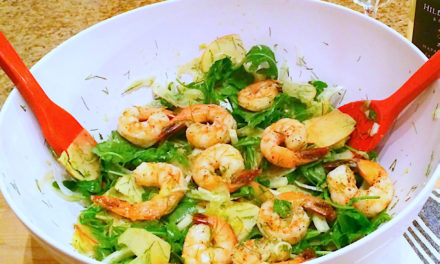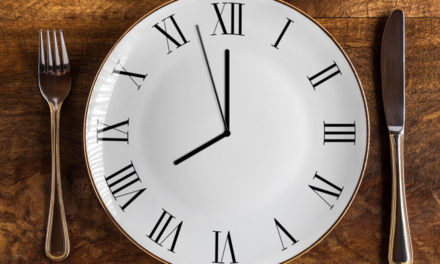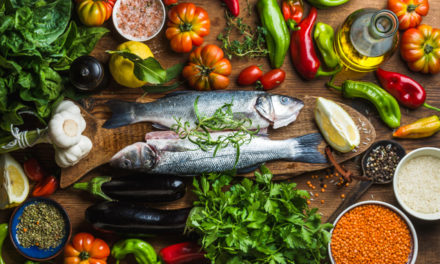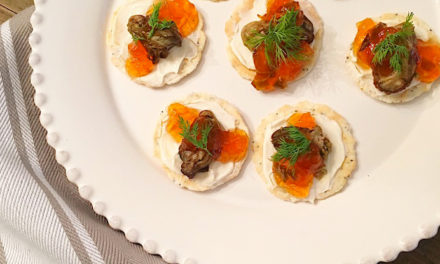“Mindfulness” often evokes images of yoga, deep breathing, and meditative states. Though accurate, these visualizations of mindfulness are also incomplete! Mindfulness can be applied to any aspect of life and is simply being fully aware of the present moment without judgment. Research has shown that those who practice mindfulness tend to experience lower anxiety and depression, improvements in academic performance, and better focus and attention.
Applied to food, mindfulness involves being nonjudgmentally aware of the body’s messages before, during, and after eating. Mindful eating can elevate the eating experience by connecting with internal cues that heighten our awareness of how our bodies respond to the meal or snack. Mindful eating is a blend of inner AND outer wisdom.
Inner wisdom involves awareness of internal cues such as hunger, fullness, and level of satisfaction with the meal, as well as how your body responds to a particular meal or snack. Outer wisdom involves extrinsic goals such as fueling needs before and after workouts or competitions, planning around health goals like cholesterol or blood sugar management, and when to seek support from a nutritional or medical professional.
WHAT ABOUT ATHLETES?
Athletes and highly active individuals rely heavily on food to fuel their performance, and those who practice mindful eating strategies can elevate that performance by bringing a heightened awareness to inner and outer wisdom. Asking questions such as, “How hungry am I for this meal?” or “What components do I need to include on my plate before my competition?” can lead to improvements in performance AND support greater satisfaction with meals.
Applying mindful eating concepts as an athlete is challenging and takes practice. For example, tuning in to internal cues such as hunger can be difficult, as hunger cues are often muted during and after exercise. Relying on “outer wisdom” (i.e., recognizing the need for regular intake despite lack of hunger cues) can help fill fueling gaps and support better performance. However, developing accurate outer wisdom can also be tricky! Athletes are often subjected to confusing marketing around “good” or “bad” foods, unregulated, often harmful supplements, or pressures to over-train and “maximize” performance, leading to greater potential for injury. Applying mindful eating may involve meeting with a trained professional to support weeding through unhelpful jargon and tapping into authentic inner and outer wisdom!
FIVE STRATEGIES FOR MINDFUL EATING FOR ATHLETES
1. Eat slowly and without distraction. Limit phone or television use while eating, working through lunch breaks, and eating on the run. Distractions inhibit our ability to pay close attention to the messages we receive from our bodies during the eating experience. Try choosing one meal per day to enjoy without distraction and ask yourself questions like:
- “How is my body responding to this meal?”
- “At what point am I comfortably full?”
- “Does this meal support my fueling goals?”
2. Utilize mini check-ins. Use nonjudgmental curiosity to check in with your body throughout the day, before and after workouts, and during meals and snacks to assess how your body is feeling. Notice anything you need to change or add to respond to your body’s messages.
3. Honor fueling requirements. Determine what your body needs to fuel your sport regarding macronutrients, meal and pre-/post-workout timing, and hydration and electrolyte needs to support your workouts and/or sports.
4. Honor food preferences. Permit yourself to include the foods you enjoy regularly. Don’t deprive yourself of fun foods! Ignoring or denying these preferences can lead to uncontrollable cravings later. Remember: There is no one specific food that will make or break your performance!
5. Practice reducing judgmental self-talk. Notice when thoughts are becoming judgmental toward yourself, your food choices, or your body’s performance. Gently challenge these thoughts while replacing them with more self-compassionate alternatives. Practice incorporating a more self-compassionate inner dialogue by being your own biggest fan!
Emily Gause, MA, RDN, LDN is a Nutrition Therapist at Memphis Nutrition Group, a nutrition and lifestyle counseling practice offering in-person and virtual nutrition therapy specializing in a non-diet, weight-neutral approach. Contact Memphis Nutrition Group at 901.343.6146 or visit MemphisNutritionGroup.com for more information.
By Emily Gause, MA, RDN, LDN







